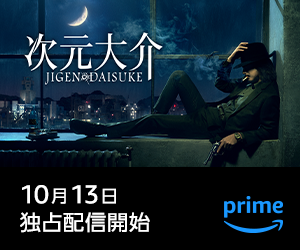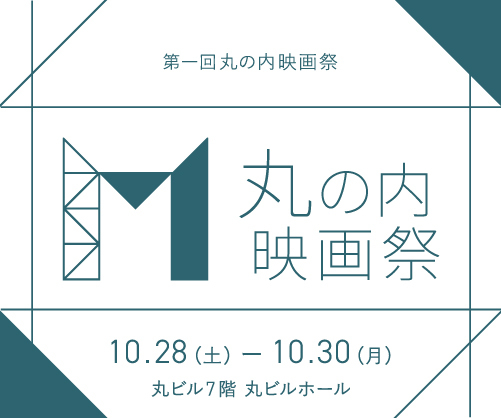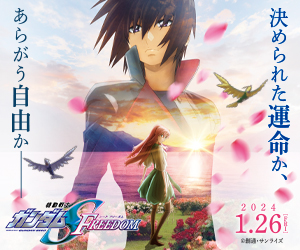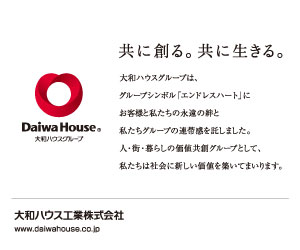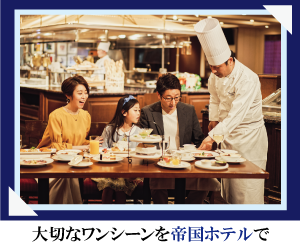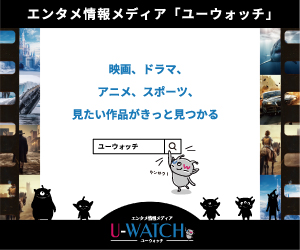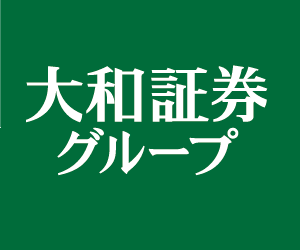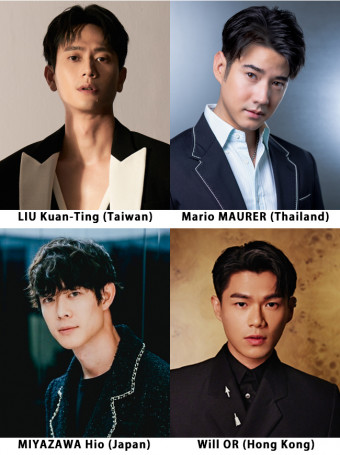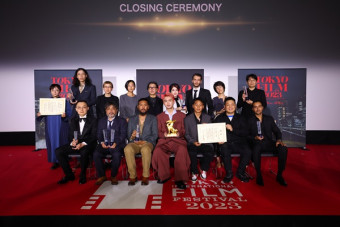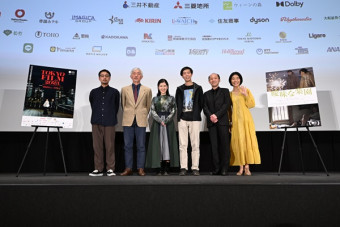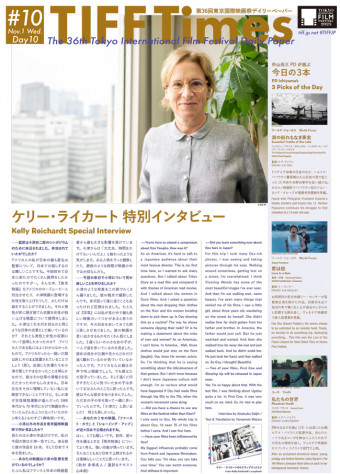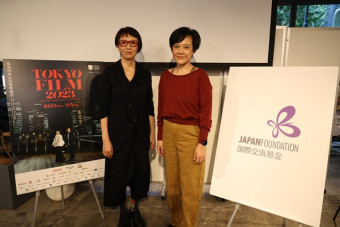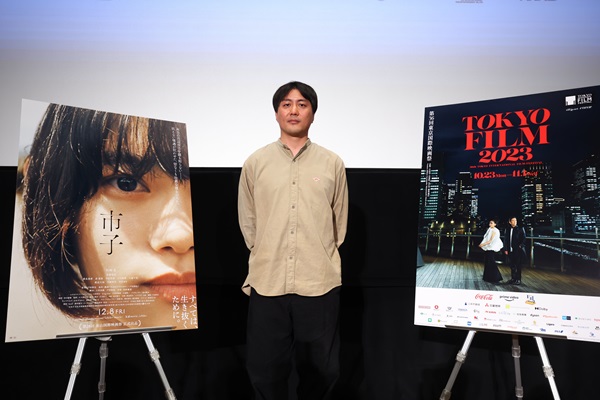
The buzz has been building for Ichiko, a film that manages to be a coming-of-age tale, a touching romance, a psychological suspense story, a police investigation and a condemnation of human rights abuses all at once. During the well-attended Q&A session following the film’s Japan premiere in TIFF’s Nippon Cinema Now section on October 26, writer-director-editor Toda Akihiro delved into its origins and his challenges in transitioning it from stage to screen.
TIFF Programming Director Ichiyama Shozo began the session by asking what had prompted the director to adapt his award-winning play 2015 play “Kawabe Ichiko no tameni” (roughly, “For Kawabe Ichiko”). The director said he’d been approached about writing a screenplay at the time, “but it wasn’t until 2018, when I wrote the sequel to the play, that I started to feel like I should go ahead and try adapting it.”
An active playwright as well as the director of three previous films, Neko ni Mikan (2014), The Name (2018) and Walking Together (2022), Toda wasn’t hesitating due to a lack of experience. Instead, he was trying to figure out how to bring Ichiko to life on screen. “In the play, the character of Ichiko doesn’t exist on stage,” he explained. “She is the subject, but we never see her. I knew that in a film, an actress would have to perform the role, she would need to exist. But I wanted to convey the feeling that we don’t know who Ichiko is. So I decided to depict her from the perspective of people who once knew her.”
To that end, Toda cleverly constructs the film using a scrambled chronology, making viewers work to put together the intriguing puzzle pieces of scenes that eventually range over nearly 20 years.
Ichiko opens in 2015 with a wedding proposal by Hasegawa (Wakaba Ryuya) and a joyously tear-streaked acceptance by Ichiko (Sugisaki Hana). But the next day, apparently stunned by something she hears on the TV news, she is impelled to take flight. When her fiancé arrives home, she’s gone. He calls on the police for help, and a scruffy detective (Uno Shohei) soon discovers that Ichiko never existed in the first place. And so begins Hasegawa’s journey to find out who she really is and why she had to leave. Ichiko’s parallel journey, in search of her past, her very identity, gradually reveals shocking incidents that are sure to shake viewers to the core, and to move them deeply.
Praised for the selection of an excellent Sugisaki Hana (Piéta in the Toilet, Her Love Boils Bathwater) in the lead role, Toda was asked how he went about the film’s casting. “I was thinking about casting when I was writing the script,” he said. “I started by creating a timeline for Ichiko. She was born in 1987 in Kansai, and that is an important aspect of her character, so it had to be an actress who could speak the dialect naturally. Sugisaki Hana had already mastered the Kansai dialect for other roles and can speak it in a very natural way. And she’s a great actress. Ichiko is a complicated character—sometimes she’s bright, sometimes dark. Ms. Sugisaki has a depth, even in her eyes, that allows her to express the different sides of Ichiko.”
An audience member asked about the film’s depiction of male-on-female violence, which is rather ample. Toda instead focused on the character of Hayakawa, who inflicts no violence whatsoever, at least not physically. “When I was creating Hayakawa, I worked with Mr. Wakaba closely. I told him that Ichiko had never been comfortable at any stage of her life. The two never talk about the past. He doesn’t know her and she doesn’t know him. He realizes at a certain point that he might have asked, might have done more to help her. He doesn’t actively harm her, but he also doesn’t try to really know her.”
Another audience member commented that he’d never seen a story highlighting the lack of koseki (family register) before, and wondered how Toda came up with it. “Around 2010,” responded the director, “a friend of mine from college died, but I noticed that his social media accounts were somehow still active. Even though he was gone, not everyone knew. So on his birthday, there were a lot of birthday greetings on his Facebook and Twitter. I started imagining what it was like if a person existed but didn’t have an official registration. I did some research and discovered that there were some 10,000 people without koseki in Japan and I decided to write about it.”
In Japan, a koseki is tantamount to survival. Without one, it’s nearly impossible to get a job, rent an apartment, or lead an existence that is not on the margins. While there are many who must do without them for a variety of reasons, the archaic system and a set of anachronistic laws that govern family relations have led to the problem of unregistered citizens, or mukosekisha—unable to fully take part in society or exercise their basic rights, they often fall through the cracks.
But Toda was quick to caution the audience not to be judgmental about Ichiko: “I don’t want you to think about whether what she did is the right thing. I don’t want you to consider right or wrong, to judge her, to impose morals on her actions. We don’t really know who’s to blame. But perhaps the film will give people an opportunity to consider their own lives and how they might have acted, given Ichiko’s situation.”
Q&A Session: Nippon Cinema Now
Ichiko
Guest Speaker: Toda Akihiro (Director)












